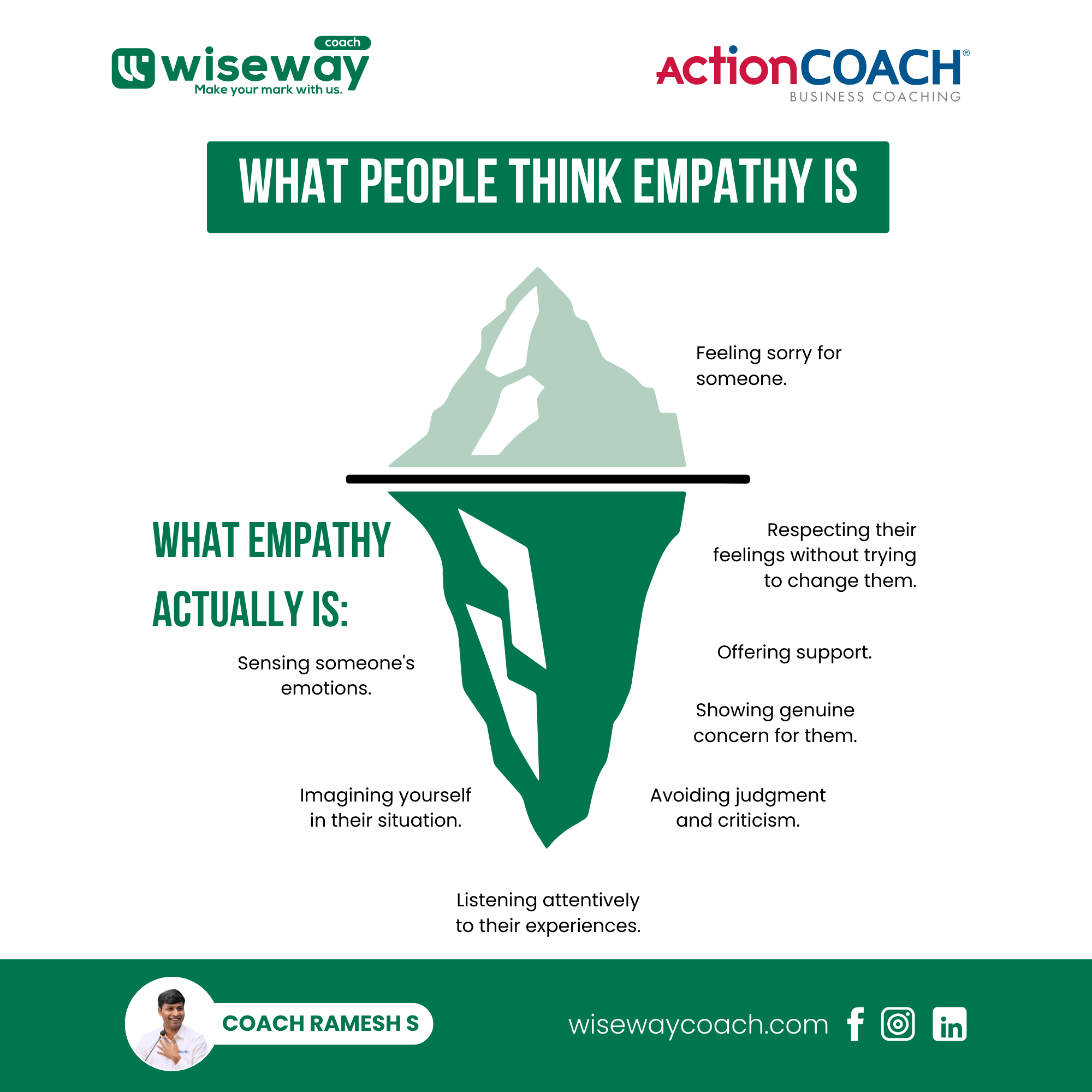What People Think Empathy
October 31, 2024 2024-11-16 15:52What People Think Empathy
Mastering Team Development
The Tuckman Model

The “Empathy Iceberg” image highlights the common misconceptions about empathy, often mistaken as simply feeling sorry for someone. True empathy goes deeper, involving active listening, respect, understanding, and withholding judgment. It means putting yourself in another’s shoes, offering support, and showing genuine concern. This deeper understanding of empathy fosters stronger relationships and effective communication, essential skills in both personal and professional contexts.
Key Takeaways
Empathy Goes Beyond Sympathy
Empathy isn’t just about feeling sorry for someone; it involves deeply sensing and understanding their emotions without judgment.
Listen Attentively to Others’ Experiences
Active listening is a core component of empathy. Truly listening allows people to feel heard and validated, which is foundational for trust and effective communication.
Imagine Yourself in Their Situation
Empathy involves putting yourself in someone else’s shoes to grasp their perspective, fostering genuine understanding and compassion.
Respect Feelings Without Trying to Change Them
A key part of empathy is honouring another’s feelings without offering solutions or trying to alter their emotions. This shows respect for their unique experiences.
Offer Support and Avoid Judgment
Providing non-judgmental support and showing concern without criticism or unsolicited advice strengthens connections and helps people feel safe and valued.
Empathy is not about fixing someone’s feelings or offering pity; it’s about connecting on a human level by truly listening, understanding, and respecting their experience. In business and life, empathy builds trust, enhances collaboration, and opens doors to authentic relationships.
– Coach Ramesh S

(Listen + Perspective-Taking + Validation) x Non-Judgmental Support = True Empathy and Stronger Relationships
Listen First
Practice active listening by giving your full attention to others. Avoid interrupting or thinking of responses while they speak. This builds trust and shows respect.
Imagine Their Perspective
Visualize yourself in their situation to understand their feelings and motivations. This step helps you connect emotionally and develop a genuine understanding.
Acknowledge and Validate
Respond in a way that acknowledges their emotions without attempting to fix or change them. Simple phrases like “I understand” or “That sounds difficult” convey validation and support.
Offer Support, Not Solutions
Show concern by offering to help if needed but avoid imposing advice or solutions. Supportive presence is often more impactful than unsolicited guidance.

Actionable Tip
Start practicing empathy by actively listening during your next conversation. Focus on understanding rather than responding, and resist the urge to offer solutions. Instead, acknowledge the person’s emotions and let them know you’re there to support them. This simple shift fosters trust, helping build a deeper, more authentic connection.
Important Note
Empathy is an essential skill in both business and personal relationships. By practicing true empathy–listening without judgment, respecting others’ emotions, and offering genuine support–business professionals and leaders can build stronger connections, improve teamwork, and create a supportive, compassionate work environment.

For More Details
Ready to elevate your business? Our tailored coaching programs help entrepreneurs unlock their potential and achieve sustainable growth. Start with a free strategy session to discover your roadmap to success!